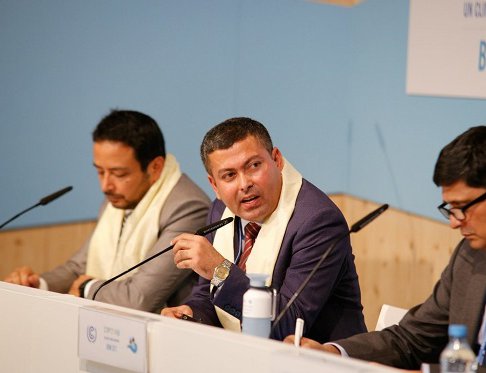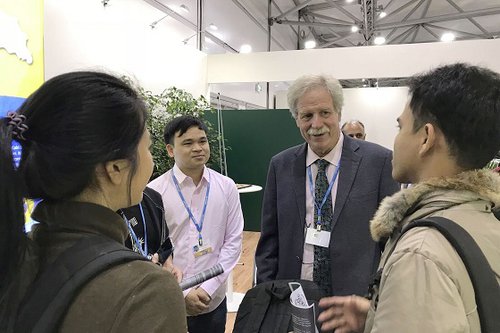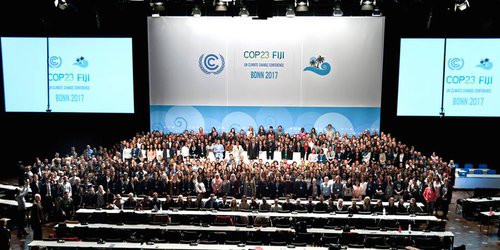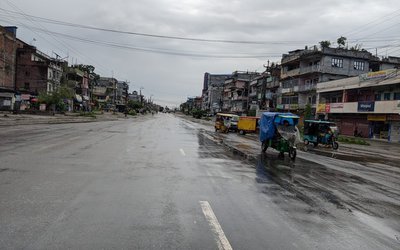
Although COP23 Bonn climate talks completed without making any major breakthrough on implementing Paris agreement, Nepal’s preparation and participation in the COP 23 was also very poor as Ministry of Population and Environment completely ignored the Ministry of Foreign Affairs in its negotiating team.
This has badly reduced Nepal’s capability in negotiations in various stages of the meeting of COP. Ministry of Population and Environment is the focal ministry for any climate change negotiations, but it is the Ministry of Foreign Affairs which is responsible for diplomatic handling and negotiations.
Taking a jumbo team consisting of large numbers of NGOs representatives and even ignoring highly experienced officials at the Ministry, secretary Dr. Bishonath Oli and joint secretary and focal point Dr.Ram Prasad Lamsal failed to show their leadership role.
Completely ignored by Ministry of Population and Environment in selecting the team, Ministry of Foreign Affairs and other line ministries raised the issue with chief secretary.
Instead of appointing any representative from Ministry of Foreign Affairs, the ministry team included others. As per the previous precedents, the Ministry even included no one from Nepalese Embassy in Bonn, which is assigned to handle all official matters.
Given the bad performance and failing to coordinate the issue, cabinet transferred the secretary of Ministry of Population and Environment Dr. Bishownath Oli to Ministry of Livestock and brought Prakash Mathema in his place.
However, it was too late and too little to control the damage on Nepal. Having played an active role as a member of LDC, Nepal has its fame and name. With the appointment of Mathema, who was part of COP climate negotiations for a long time, Nepal’s position in coming negotiations will be much better.
Climate change is already significantly increasing the likelihood of extreme weather, from heat waves to floods. But without sharp cuts to global carbon emissions, we can expect “severe, widespread, and irreversible impacts” for billions of people and the natural world.
With the rising tempura, Nepal has already faced numbers of extreme climates recently and it is likely to increase. The recent flood has made heavy damage to life and property in Nepal.
All the science, and the battering that extreme weather has inflicted this year from floods in India and Nigeria to hurricanes in the Caribbean and wildfires in the US and Europe, indicate that global emissions need to start falling urgently – in the next few years.
The Paris agreement set out principles, but not the details, with one diplomat likening it to having a brilliant new Smartphone but no operating system. The Bonn meeting will be vital in building the rules that will enable the Paris deal to work.
What needs to be done?
The current pledges for carbon cuts by the world’s nations would need to be translated to contain global warming and severe damage. So the Paris agreement included a mechanism for the pledges to be reviewed and ratcheted up, but without setting the rules. The vital groundwork for this has to be done in Bonn before being finalized in 2018. Without serious preparation to build trust and agreement, deals don’t get done, as the failed COP in Copenhagen in 2009 showed. Fiji has renamed the ratchet talks process from the bland “facilitative dialogue” to the “talanoa dialogue” after a Pacific island concept of using storytelling and talking as a way to make good decisions.
With the 2018 deadline for the completion of the Paris Agreement “rulebook” negotiations around the corner, the Least Developed Countries (LDCs) have been very busy this year.
Playing a leading role in LDC group, Nepal has its place on it. Although LDCs were among the most vocal countries in Bonn, Nepal’s leaders were unable to show their presence.
One of the main outcomes of the Bonn intercessional that’ll help us make this progress was the hard-won agreement on a suite of roundtables to be held just before and at the start of the Fiji COP in November. This outcome wasn’t a sure thing with the closing plenary of the Ad hoc Working Group on the Paris Agreement (APA) on the verge of derailing on the last day of the Bonn intercessional. But a collective spirit of compromise and focus on the urgency of the work prevailed with LDCs at the heart of the huddles and side negotiations.
On adaptation communications, LDCs have spent considerable time and effort developing National Adaptation Plans (NAPs) so LDC’s position has been that Parties need to have the option to submit NAPs as their adaptation communication.
One of the things the LDCs have been working hard on is improving our internal coordination so we can be more effective in developing our positions and strategy to negotiate outcomes that reflect our priorities.
COP 23 has already concluded. The time has come for Nepal now to start the preparation for coming meeting with the coordination among the government ministries including Ministry of Foreign Affairs.
- MELAMCHI WATER SUPPLY: No Interruption During Monsoon
- Jun 25, 2025
- KOREAN RETURNEES: Successful Integration
- Jun 25, 2025
- UPPER TRISHULI-1: Engaging With Local
- Jun 25, 2025
- IME GROUP: Twenty Five Years Of Journey
- Jun 24, 2025
- NEPAL’S AIR POLLUTION: A Growing Health Concern
- Jun 24, 2025















